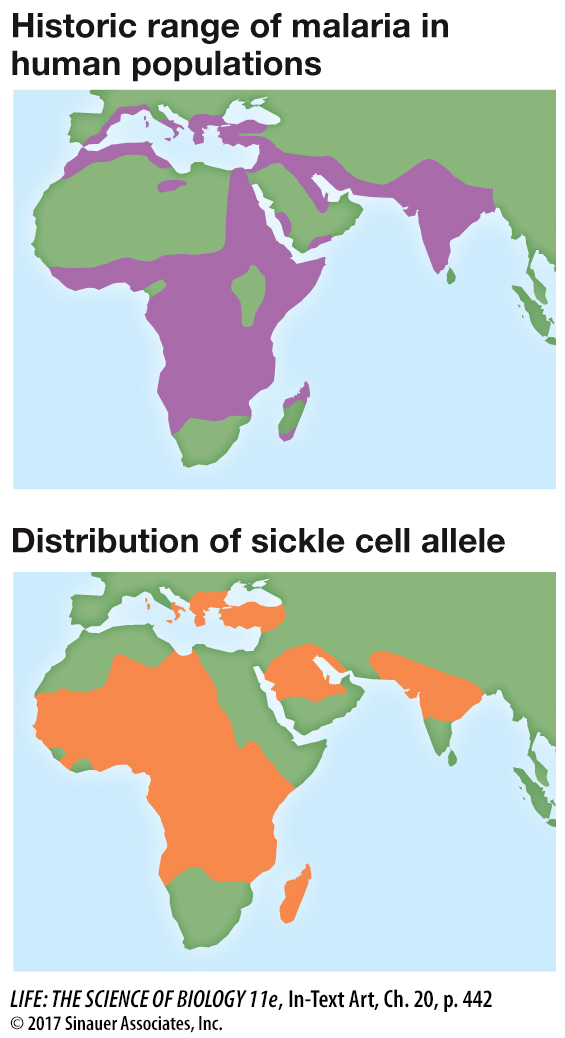recap
20.5 recap
Neutral mutations, sexual recombination, frequency-
learning outcomes
You should be able to:
Explain how genetic variation is useful for a species in the face of environmental variability.
Propose a process for the maintenance of deleterious alleles in a population and a method for testing the hypothesis.
1.
Human populations in central Africa have a high frequency of sickle-

The heterozygotes between the sickle-
2.
How could you test the hypothesis that you formulated in Question 1?
A large population of humans could be tested for infection with malaria, and the frequency of infection, and the consequences of the infection, could be compared in people who do versus do not carry the sickle cell gene as heterozygotes. If the heterozygous individuals have an advantage in malaria resistance, we would expect them to exhibit lower infection rates or reduced effects of infection.
3.
How could the presence of a great deal of genetic variation within a population increase the chances that some members of the population would survive an unprecedented environmental change? Why is there no guarantee that this would be the case?
High genetic variation leads to more opportunities for the presence of beneficial alleles or traits. If the environment suddenly changes, and beneficial traits are already present in the population, then selection can increase the frequency of those traits and the population can rapidly evolve. However, high genetic variation does not guarantee that appropriate beneficial alleles will already be present in the population.
The mechanisms of evolution have produced a remarkable variety of organisms. There are organisms that have adapted to nearly every environment on Earth. This natural variation, along with the success of breeders attempting to produce desired traits in domesticated plants and animals, suggests that evolution can produce a wide variety of adaptive traits. But are there limits to the adaptations evolution can produce?